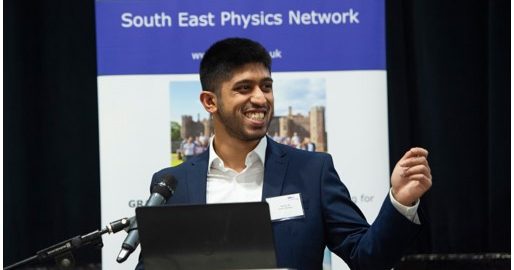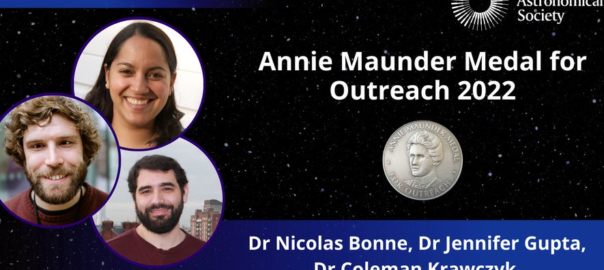SEPnet organises over 80 summer placements a year for all 2nd and 3rd year physics and maths undergraduate and PhD students at the above universities and is seeking 8-week plus projects in industry or research in areas such as data analysis, mathematical modelling, programming, product design and testing or science communication.
Who can apply?
The scheme is aimed at any organisations interested in recruiting physics or maths graduates, or who can offer valuable business experience, including large companies, SMEs, start-ups, research institutions, charities and NGOs.
Benefits to employers
• Early access to bright, numerate students with excellent problem-solving and IT skills
• Enables you to carry out projects you would not normally have time for
• Provides a fresh perspective on your business challenges
• All advertising, administration and placement support is handled by the SEPnet team
• Match-funding available for SMEs!
What employers have said:
‘Very satisfied with the whole process, organised and straightforward, with good students.’
‘We took SEPnet students for the second year running and have been very impressed with the calibre, their capabilities and the general high standard. For your records we have just made a permanent job offer to one of the students…’.
Register your placement project, or projects, online here: https://www.smartsurvey.co.uk/s/SEPnet_Summer_Placements_2022_Employer_Registration/ by Friday 11 February. Email summerplacements@sepnet.ac.uk for further information.
Monthly Archives: January 2022
Portsmouth ICG Public Engagement Team win Prestigious Royal Astronomical Society Annie Maunder Medal
Dr Nicolas Bonne, Dr Jen Gupta and Dr Coleman Krawczyk have been awarded the RAS’s Annie Maunder Medal for their work on the Tactile Universe Project. The Annie Maunder Medal is awarded annually for outstanding outreach work.
The Tactile Universe project delivers workshops that make astronomy accessible to vision-impaired children. Their work enables children between the ages of 7 and 14, to experience the benefits of a multi-sensory learning experience, inspiring them to the wonders of the universe with 3d models of galaxies, the Solar System and using sound. A newly funded STFC project will enable the project to expand its interests to the communicate research into gravitational waves. In addition to delivering workshops, the team have created resource kits and train other practitioners and museums to share knowledge so that the project goals are disseminated widely across the UK. The project has received international recognition through invited conference talks, and media coverage, including an appearance on BBC’s The Sky at Night, and has collaborated with an international installation at the British Science Festival. The Tactile Universe also has international reach through the project’s website, where educators across the world can access developed lesson plans, presentations, and instructions for how to create 3d printed models to deliver astronomy classes to children regardless of their level of vision. The Tactile Universe project and its team are commended for their continuing efforts to create a more inclusive environment that brings astronomy to all.
SEPnet send the Tactile Universe team our heartiest congratulations on this fantastic achievement. We have thoroughly enjoyed working with Nic, Jen and Coleman and look forward to continuing to do so through the exciting next phase of the project.
Machine Learning & AI Online Workshop 12 January 2022
Thank you to Professor Adrian Bevan, Head of Department of Physics and Astronomy, Queen Mary University of London who delivered the GRADnet Machine Learning & AI online workshop on 12 January 2022 to over 40 postgraduate and postdoctoral researchers.
Adrian’s view of how the day went: “It is important to develop and maintain relevant skills throughout our working lives, from the moment we start studying through to the day we retire. Really great to see a new generation of Physics PhD students as a part of the GRADnet programme follow the 2022 GRADnet Machine Learning workshop today. We had over 50 participants registered for the event, which covered real world use of ML, an introduction to machine learning using TensorFlow, and an overview of how to use data science to predict air-pollution – a global problem that is gaining prominence in terms of links to health.
Our first speaker was an ex-Physicist and Queen Mary University of London alumnus Dr Tom Charman. He now works at Accelex on the use of AI in industry, focusing on NLP application to financial documentation. It was fascinating to see the same kinds of thought processes and workflow ideas that help particle physicists analyse abstract forms of data to find the Higgs boson, and search for new particles at the LHC applied to NLP problems in the real world. This really highlights that the skills sets developed as a physicist are really widely transferable. Learning about the priorities of UK companies in terms of the additional skill sets beyond that taught in the curriculum, is also a great help – as we all need to embrace professional development in our careers, from the outset until the day we retire.
Drs Marcella Bona and Jia-Chen Hue from Queen Mary University of London talked about the SAPIENS (Smart Air Pollution Information Enabling New Solutions) project looking at data sets collected in Mexico City and how from that one can predict air pollution. This was another data science project that used methods (and code!) from an LHC analysis – this time used for rare B decay studies on ATLAS. The ability for physicists to work in a multidisciplinary team of data scientists to study this critical and ubiquitous problem facing populations of large cities across the planet is amazing. Again it highlights the importance of learning how to solve a problem in whatever you want to specialise in and then look for interesting ways to make a difference by applying your knowledge elsewhere. Sharing that expertise across the disciplines helps make great ideas turn into real outcomes.
The tutorial part of the day was run by me with the help of a great graduate student, Joe Davies. We started off looking at a simple linear regression problem using keras. For those of you who studied linear regression at school, yes this is really overkill. However it is a great starting example to pedagogically explore how optimisation works for machine learning and to turn the dry math associated with the books and papers to see in action with a single input, single output problem that can be solved analytically, what happens when you get let loose with the ADAM optimiser. This helps provide a solid grounding to discuss machine learning optimisation problems in general, and is a good way to separate out how optimisation works in practice from the more complicated issues surrounding neural networks in the form of multilayer perceptrons, deep learning and moving on to convolutional neural networks. The workshop stopped there, as we ran out of time at the end of the day having covered a great deal of material. The real stars were the participants. We had some great questions and discussions throughout the day.
This was a SEPnet organised event run at Queen Mary University of London in the Department of Physics and Astronomy. Sadly for the second year in a row this was an online-only event, but we are hopeful that next year we will be able to resume in-person meetings and move back to a multi-day workshop on campus, taking on board feedback from the participants to make the workshop even better.
- If you want to get involved in GRADnet ML 2023 reach out to me via my linked in page to ask how to get involved.
- The code used in the GRADnet ML tutorial can be found on my git hub page.
- You can find more of my machine learning teaching material on my teaching home page.”



